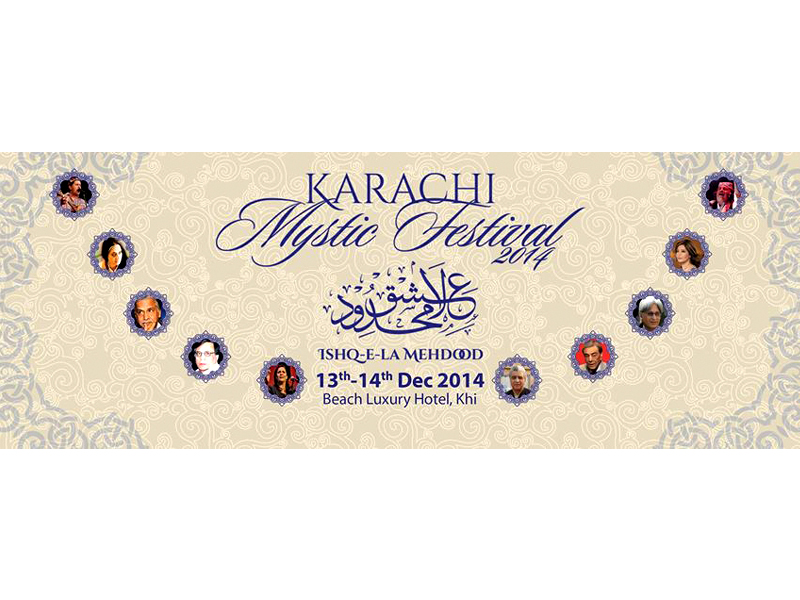
The inaugural edition of the Karachi Mystic Festival drew to a close on Sunday at the Beach Luxury Hotel. Strapping words by renowned Pakistani barrister and author of Indus Sagar ended the evening on a pleased note.
Chaudhry Aitzaz Ahsan’s book Sindh Sagar, also known as the Indus Saga and The Making of Pakistan, draws inspiration from numerous literary sources aiming to establish the disconnect of the Indus from India. The book showcases the political history and culture of the Indus region, ranging from the historical times to the present.

Ahsan, who has served as both the interior minister of Pakistan and minister for law, justice and human rights, lamented how for the duration of Zia’s era, several history books had been altered to present history as per their own needs and wants at that time.
He used the example of a course book, titled The Islamic History of Pakistan, which was published for schools during Zia ul Haq’s regime to further validate his point.
“Barring a few chapters towards the end of the book, which talked about Muhammad Bin Qasim’s conquest of Sindh, most of the chapters in the book were focused on Saudi Arabia,” Ahsan told the crowd at the Karachi Mystic Festival.

He also noted that The Islamic History of Pakistan had no mention of Indus Valley Civilisation, which apart from being one of the oldest civilisations in the world was also one of the most technologically advanced.
The discussion on Sindh Sagar also featured Member of National Assembly (MNA) Hakim Baloch, notable Urdu columnist and writer Farrukh Goindi and talk show host Mujahid Barelvi alongside Ahsan on stage.
During the sitting, Ahsan noted that a major reason behind the astronomical progression of the Western world was because unlike our society, where questioning of age old laws and traditions is strictly prohibited, the western world constantly explores its surroundings by questioning them.
The discussion on the book recorded an exceptional turn out with many people attending the festival to specifically be present at the talk.
Wajih, one of the volunteers for the Karachi Mystic Festival, stated, “The session was enriching and enlightening. Basically, the way he put the whole concept of how we as Pakistanis are going through an identity crisis was brilliant as we are unaware of our history.”

Earlier, Aitzaz Ahsan delivered a keynote address on the opening day of the festival and was also slated to be part of another panel discussion on the second day titled Faraz & Jalib, Romantic Revolutionists alongside Shibli Faraz and moderator Mujahid Barelvi.
Another highlight from the event was the recitation Iqbal, and Rumi’s poems by veteran stage and film actor Zia Moheyuddin.
Day 2 of the festival had a panel dialogue on ‘Pakistani Drama: Heading back to glory’ which included renowned TV actor Atiqa Odho and writer Haseena Moin and was moderated by Khalid Ahmed.

The festival, which was organised by the Rumi Love Foundation, aimed to exhibit music, art and literature for people who are in awe of Sufism. The theme for the event was of Ishq-e-La Mehdood which translates into infinite love.
The Rumi Love Foundation, founded in 2012, is known for its efforts to broaden both spiritual and intellectual knowledge through various events such as lectures, musical events and seminars.
Published in The Express Tribune, December 16th, 2014.
Like Life & Style on Facebook, follow @ETLifeandStyle on Twitter for the latest in fashion, gossip and entertainment.




1730959638-0/trump-(19)1730959638-0-165x106.webp)

1732436825-0/BeFunk_§_]__-(47)1732436825-0.jpg)



1732438009-0/BeFunk_§_]__-(48)1732438009-0.jpg)






COMMENTS
Comments are moderated and generally will be posted if they are on-topic and not abusive.
For more information, please see our Comments FAQ